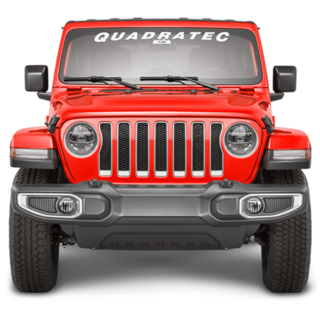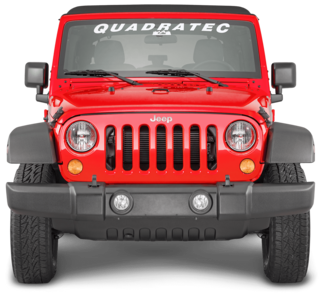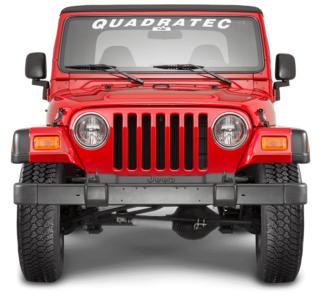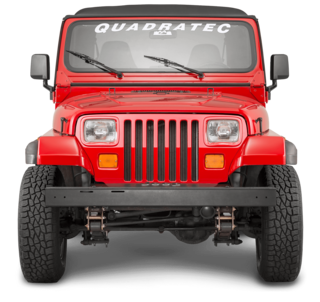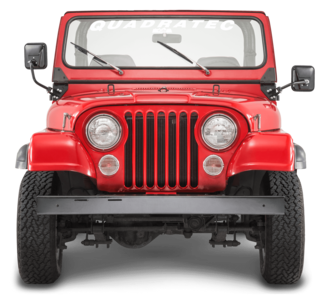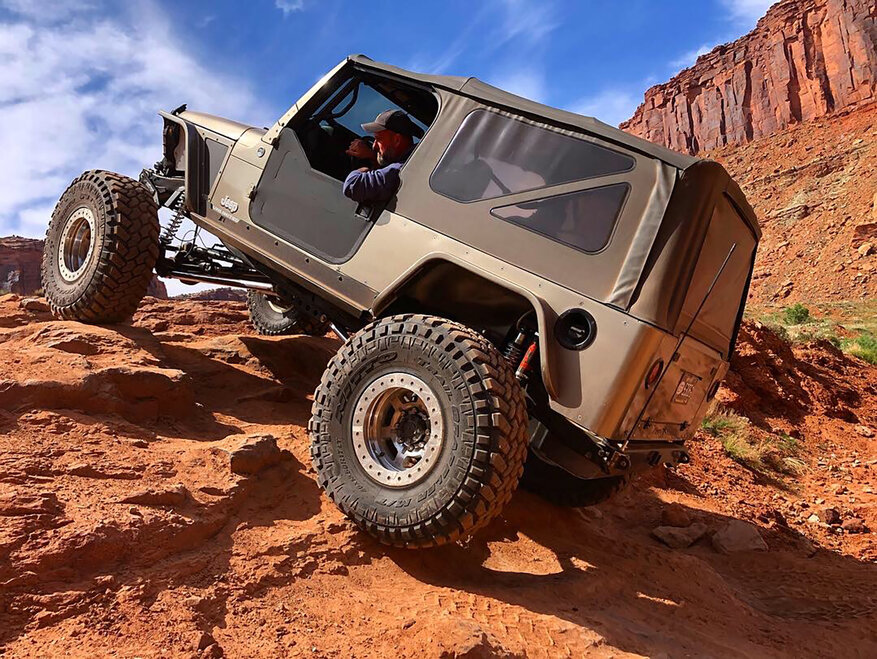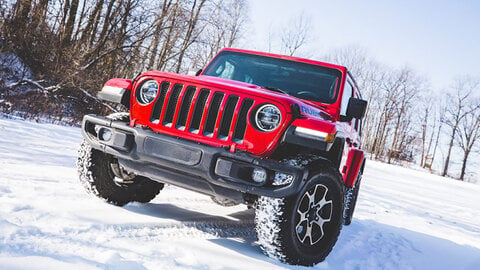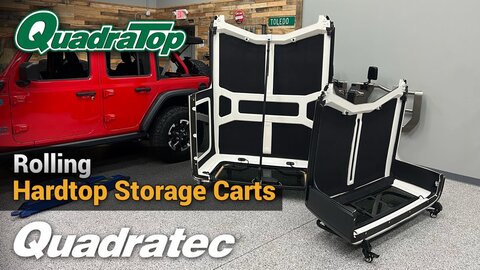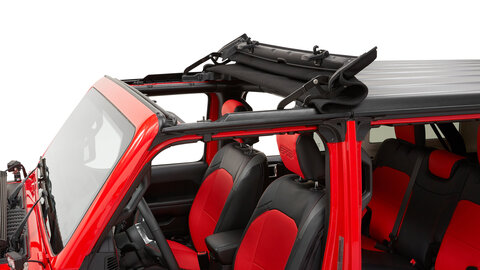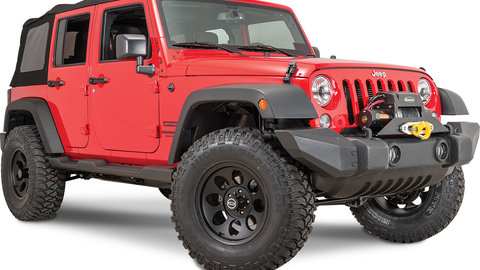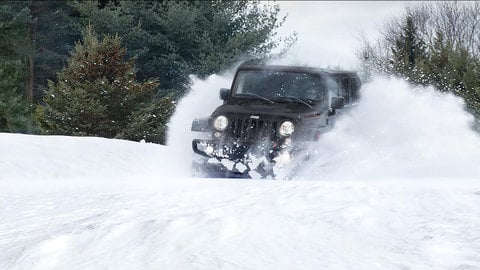by Matt Konkle
Managing Editor
It begins, usually, with a small rattle. Somewhere. Perhaps a loose piece of aluminum framework behind the passenger seat. Or maybe a shaky header bar against the windshield frame.
Sometimes it a flapping so annoying that you just want to unzip all the windows, take the whole thing down and deal with the rushing wind.
But you can’t. Because it just so happens to be raining at the time.
So, alternatives. Well, turning up the radio is one way to deal with the rattling and flapping annoyance, but, realistically, you know it is not the best solution.
Instead, how about ripping off that band-aid in one quick motion and addressing the issue head-on? If only for your own peace of mind.
Now, you could just take the whole thing off and find another top that performs better. Sometimes that is the best course of action if the top is getting long in the tooth. It is not the only one, though.
Thankfully, there are several cost-effective solutions you can apply to mitigate this common issue and help you enjoy your ride in peace.
Here are some of the top ones from our experience that can certainly help tame that soft top noise:
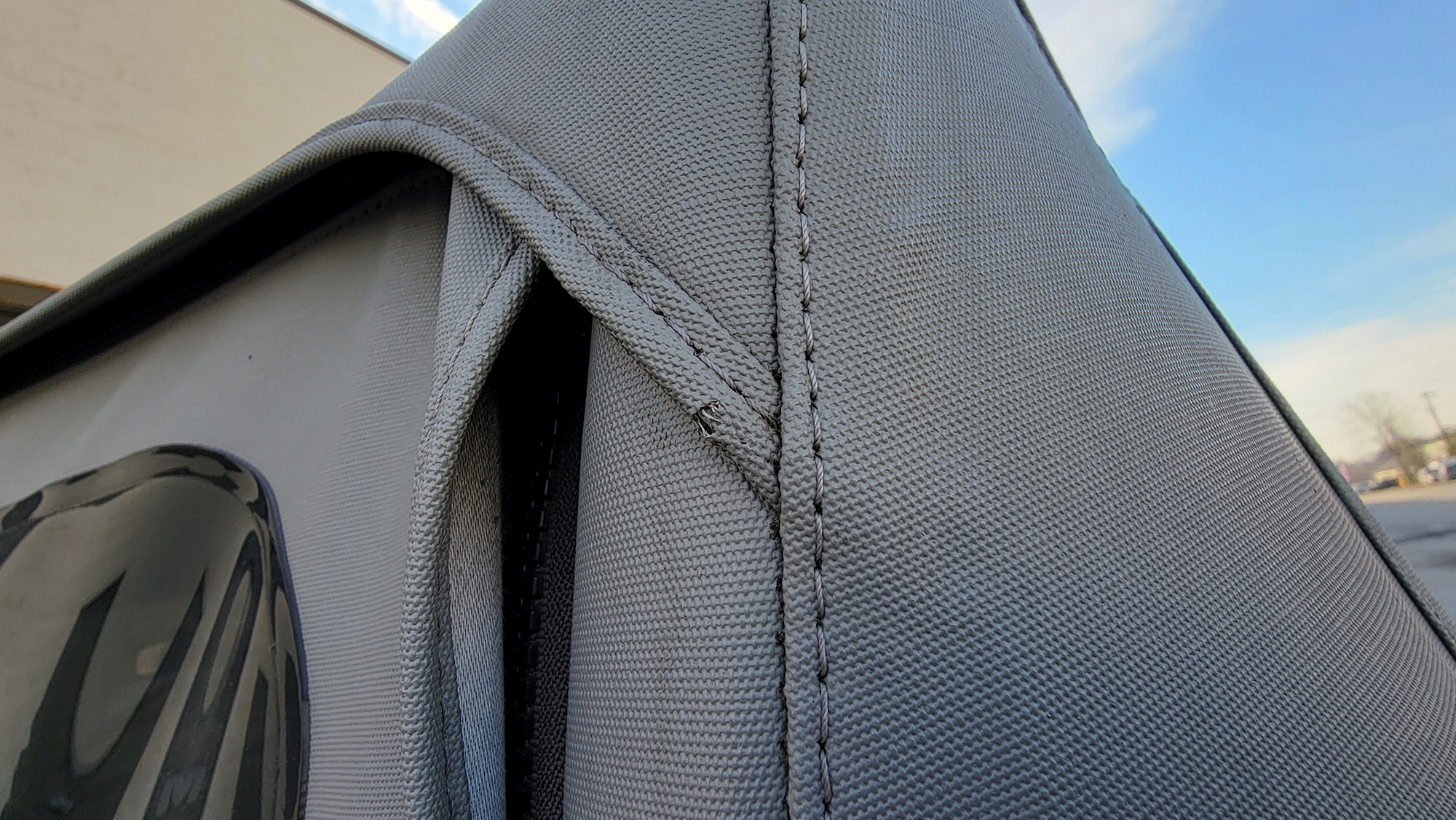
Understand The Cause
The first step in attacking that soft top noise issue is understanding its origin. Don’t just guess.
Soft tops are, by design, less rigid and soundproof than their hardtop counterparts — meaning they're more susceptible to wind noise. Misalignment, loose hardware, bad seals, or material degradation could also contribute to the noise level.
Start by checking the condition of your top, not only from the exterior, but interior as well. Inspect for things like excessive material wear and tear, loose bolts, ill-fitting hardware, or channel fitment issues. Once you are able to narrow down the issue(s), then solutions become more apparent.
Tighten and Secure
Loose bolts or brackets — even misaligned zippers — can create points of flapping or vibrations. So if you’ve discovered something like this during your inspection, then ensure everything is properly tightened or replaced.
Check your Jeep's owner's manual for the recommended torque values for all bolts and fasteners and, if your soft top has zippers, make sure they are fully shut and secured. If you have trouble pulling them tight, then don’t force the issue. Instead, using a lubricant like silicon spray can help if they're getting a bit stiff.

Address the Gaps
If wind noise is your issue, then it can often be attributed to gaps between the Jeep’s body and soft top. These types of gaps can appear over time simply due to normal wear, or can be a result of trail damage and/or improper installation.
Applying foam tape to fill these gaps can be an effective way to reduce noise as automotive weatherstripping or door seal rubber can be applied to create a tighter fit between the soft top and the Jeep’s body — preventing wind from entering and causing noise.
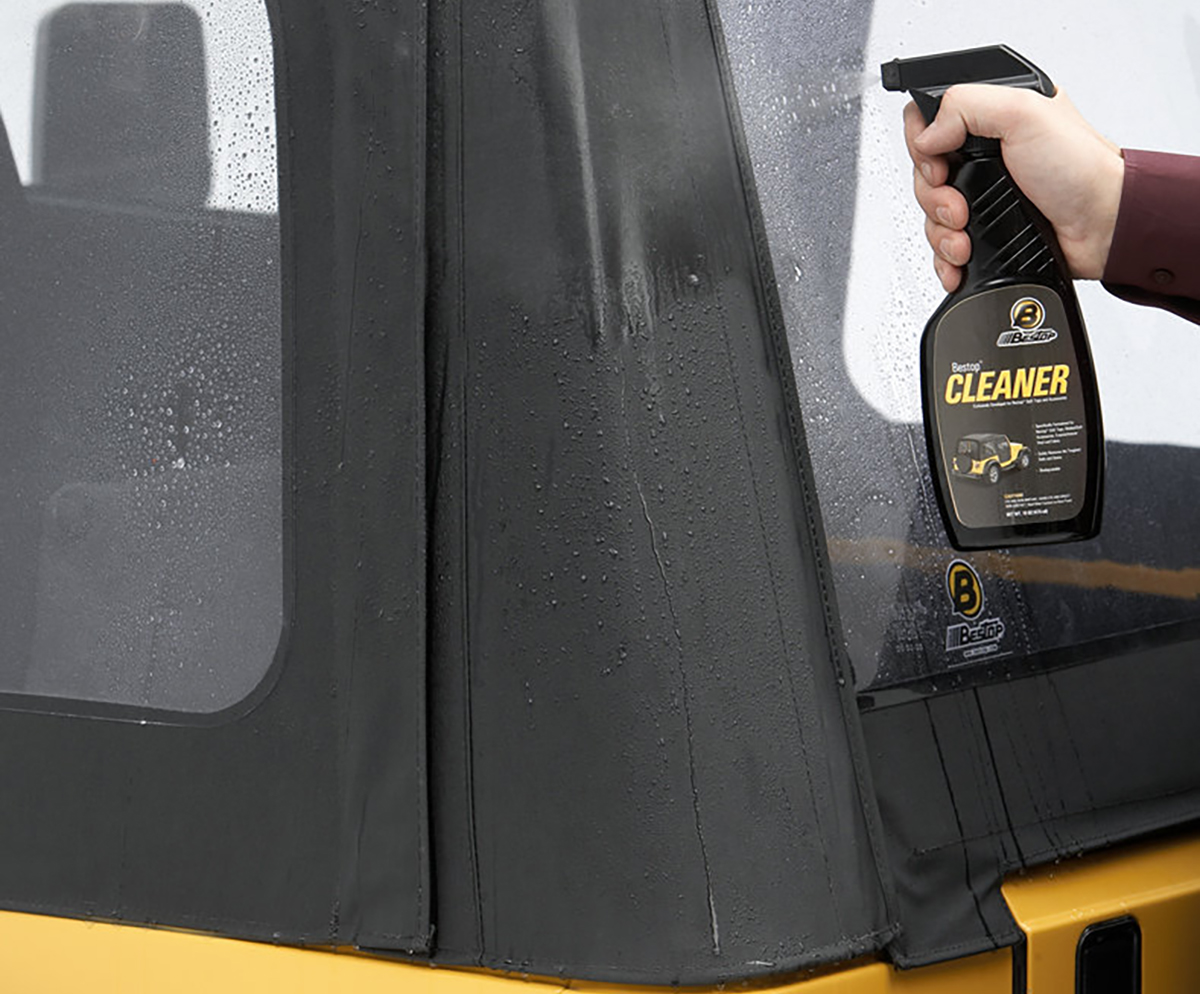
Maintain Your Material
Keeping your soft top fabric ‘in shape’ is the easiest way to prevent noise issues from failing material. That doesn’t mean taking it to the gym for endless miles on the treadmill. Instead, choose some quality fabric cleaner and protectant.
Over the seasons, UV rays, weather conditions and general use can lead to a cracking or stretched-out fabric, which is more likely to vibrate or flap in the wind. So, regularly cleaning your soft top and using a soft top protectant can help extend your top’s lifespan — keep the material taut. They also help reduce UV damage, improve water repellency, and maintain the color and condition of your soft top which can add several years to its lifespan.
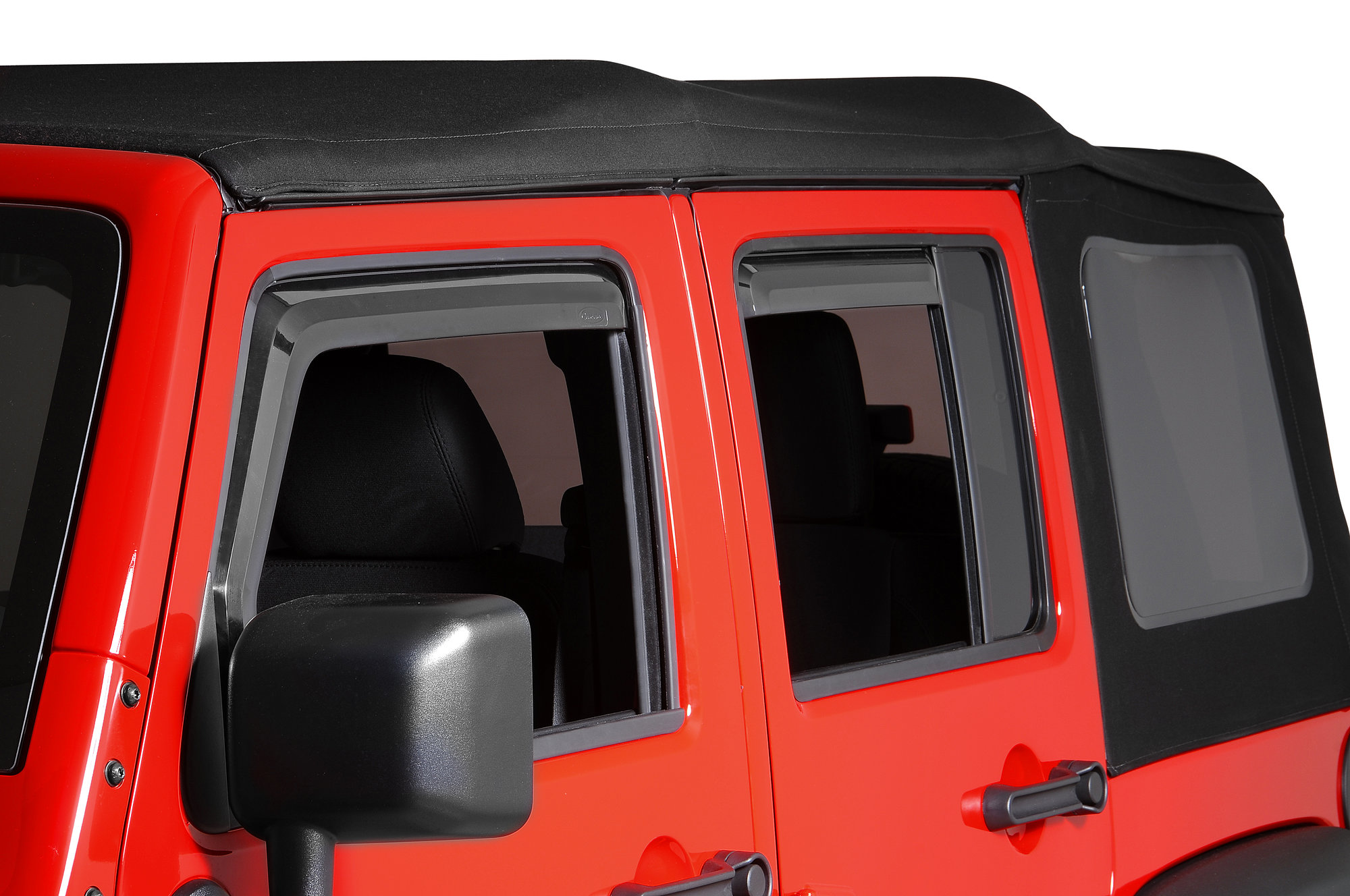
Consider Wind Deflectors
If you've inspected the material and hardware, and still struggle with noise, then consider investing in a wind deflector. These devices latch into your door tracks and help redirect airflow over the top of your Jeep, reducing the wind that hits your soft top. While these items won't totally eliminate noise, they certainly can help make a noticeable difference.
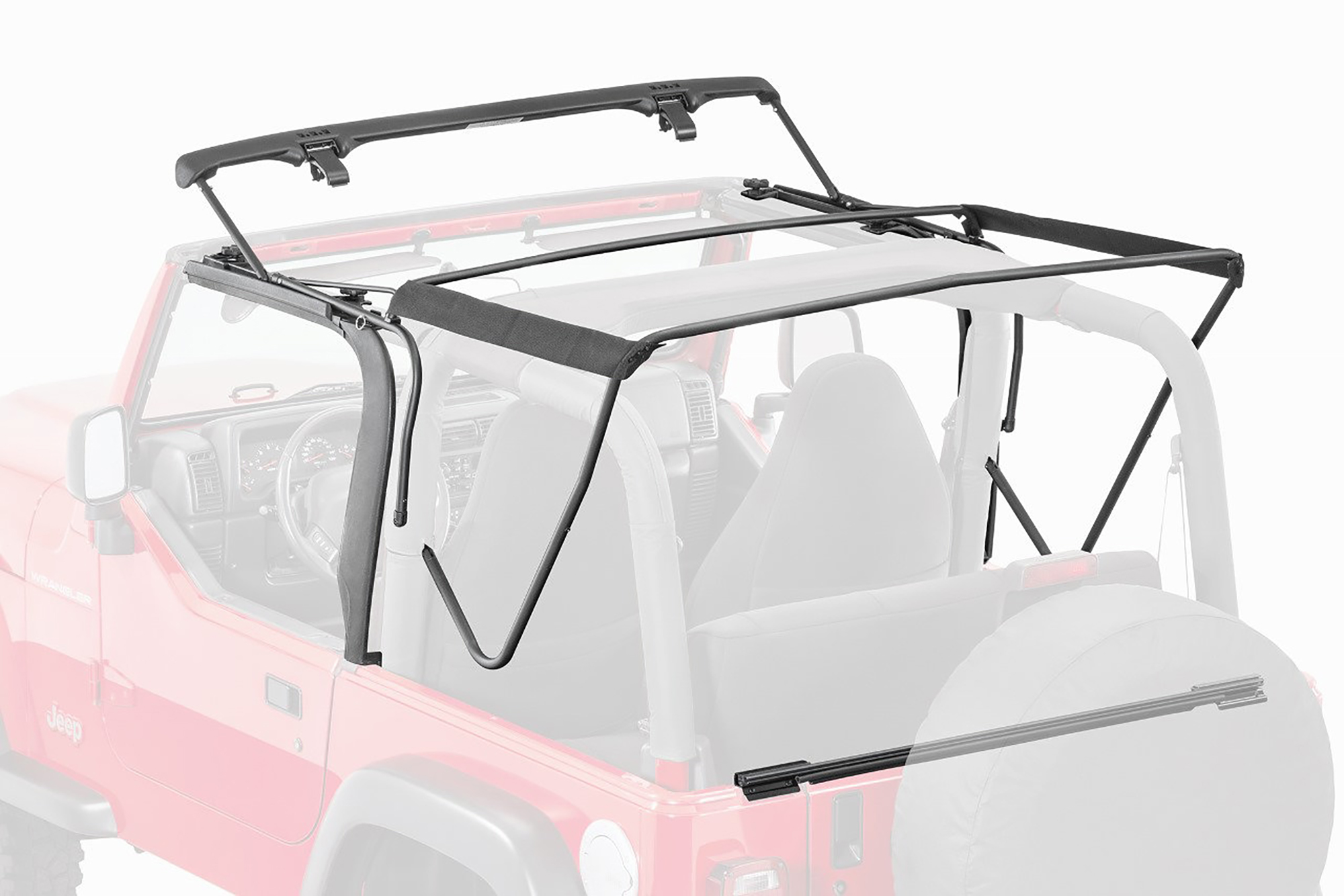
Replacement Material or Hardware
Sometimes, no matter what you do or try, your soft top is making that incessant rattle because it's just time to make a change.
So if you've tried all the above tips and still can't get the noise down, it could be due to a more serious issue like a frame problem or significant wear and tear that needs replacement.
Luckily, there are a few different ways to go if this is the issue.
If the framework is still in working condition, then you can just replace simply the material and fit it right over that hardware. Of course, this does require you to know what type of hardware you have to ensure you choose the correct material.
Similarly, if the hardware is bad then you can remove the material and get new hardware for the vehicle; and then reinstall the material.
But if neither of those are a proper solution for you, then choosing an all-new soft top that includes a new hardware system, will be your best option.
Remember, part of the joy of Jeep ownership is the journey of understanding and maintaining your vehicle. So, enjoy this process and in the end, you'll have not just a quieter ride, but also a deeper connection with your faithful road companion.


